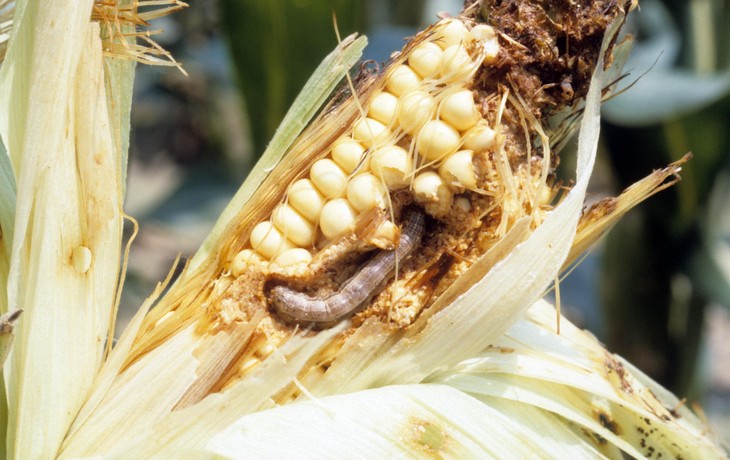Since being spotted in Nigeria in 2016, a fast-spreading agricultural pest called Spodoptera frugiperda, or the fall armyworm, has been threatening the food security of people who live in countries across sub-Saharan Africa.
According to the Food and Agriculture Organization (FAO) of the United Nations, this pest can cause significant damage to many hectares of crops, especially maize.
A fall armyworm is actually the larval life stage of a fall armyworm moth.
Although many African farmers may have heard of the new pest, researchers from the Pennsylvania State University, who teamed up with the FAO, have developed a new Android phone app called Nuru to help detect it.
Nuru uses specially developed artificial intelligence algorithms and the imaging abilities of the phone itself.
To find out whether a plant is actually infested with the pest, the farmer opens the Nuru app, holds the phone next to the suspected plant and snaps a picture.
The application will quickly analyze the photo and provide an immediate confirmation whether his/her plant is infested with the fall armyworm.
While the app currently communicates in only English, the developers are working to make it more multi-lingual and allow it to interact with the farmers in their own language.
Other improvements being developed for Nuru include an ability to better help the farmer check their crops for fall armyworm infestations and provide them with advice on the best ways to fight the pest.
The app can be downloaded for free from Google Play.
























Comments are closed.